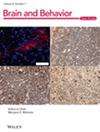Prevalence and Predictors of Chemotherapy-Related Cognitive Impairment in Elderly Lung Cancer Patients: A Cross-Sectional Study
Abstract
Objective
To investigate the potential factors contributing to chemotherapy-related cognitive impairment in elderly lung cancer patients and to offer insights for the creation of an intervention program aimed at enhancing the cognitive abilities of this vulnerable population.
Methods
Three hundred thirty-eight lung cancer patients from the departments of respiratory medicine, oncology, and thoracic surgery of two tertiary-level hospitals in Chongqing from July 2023 to July 2024 were selected for the study via convenience sampling. A self-designed General and Disease-Related Information Questionnaire, Hospital Anxiety and Depression Scale (HADS), Brief Fatigue Inventory (BFI), Pittsburgh Sleep Quality Index (PSQI), Mini-Mental State Examination (MMSE), and Functional Assessment of Cancer Therapy Cognitive Function (Fact-Cog) were utilized for the questionnaire survey. Univariate analysis of variance and binary logistic regression were employed to analyze the factors influencing chemotherapy-related cognitive impairment in elderly lung cancer patients.
Results
Of the 338 participants, 300 (88.8%) were male and 38 (11.2%) were female, and 227 (67.2%) were between the ages of 60–69 years. The prevalence of cognitive impairment measured using the FACT-Cog was 32.8%, and univariate analysis revealed that homeplace, drinking, the nature of occupation before retirement, tea-drinking habits, leisure activities, ADL, pet ownership, HADS, BFI, PSQI, education level, hemoglobin value, and insurance were statistically significant (p < 0.05). Multifactorial analysis demonstrated that education level of junior high school (OR = 0.056, p < 0.05), education level of high school/secondary school (OR = 0.035, p < 0.05), education level of bachelor's degree/tertiary school (OR = 0.028, p < 0.05), and hemoglobin (OR = 0.981, p = 0.006) were protective factors for CRCI. Additionally, the nature of occupation before retirement (OR = 0.387, p = 0.005) and leisure activities (OR = 0.342, p = 0.001) were also found to be protective factors. Conversely, diagnosed anxiety-depression (OR = 2.938, p = 0.003) and severe fatigue (OR = 3.465, p = 0.001) emerged as risk factors for CRCI.
Conclusions
CRCI is the result of the intricate interplay of multiple potential factors and complex mechanisms. Healthcare professionals need to develop personalized intervention plans for patients based on their unique influencing factors, aiming to mitigate the adverse effects of risk factors on patients' cognitive functions. This approach can enhance patients' sense of self-worth and satisfaction with life, ultimately improving the quality of life of elderly lung cancer patients in the long term.


 求助内容:
求助内容: 应助结果提醒方式:
应助结果提醒方式:


